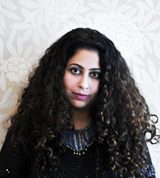A Quote by John Paul Caponigro
We don't have enough words for photography. Can you imagine writers having only one word for writing?
Related Quotes
Writing well isn't just a question of winsome expression, but of having found something big and true to say and having found the right words to say it in, of having seen something large and having found the right words to say it small, small enough to enter an individual mind so that the strong ideas of what the words are saying sound like sweet reason.
I don't think there is a need of the categorization 'woman writing'. I think in some sense writers lost their gender when they walk into the world of words; I believe that writers ought to be able to slip under the skins of both men and women. Only then will the writing and the characters have credibility and strength.
It's a hard thing to examine and difficult to speak for other writers, but when I look at my own writing there is often too much reticence. And that's a flaw I have as a person as well. I'm too reticent. I'm non-confrontational to a fault. And I'm risk-averse, which probably shows in my sentences. The aversion to long lines, the tendency to strip things back and be spare. My writing is an act of erasure that's tied up with my personality. I can easily produce a ninety thousand word chunk of writing and then cut back and back until I've only got ten thousand words. Or nothing.
I feel like the reason I ended up becoming a playwright is because I never choose the right word. As a kid, my fantasy profession was to be a novelist. But the thing about writing prose - and maybe great prose writers don't feel this way - but I always felt it was about choosing words. I was always like, "I have to choose the perfect word." And then it would kill me, and I would choose the wrong word or I would choose too many perfect words - I wrote really purple prose.
It was an incredible way to grow up, because words that you're taught - these definite things - you realize they sort of beautifully fall apart; that words are tenuous. In the middle of a large word, there's a small word that possibly contradicts the larger word. So I grew up where, on the one hand, the only thing I would ever think of doing was something in writing, music, or art, and on the other hand, I could've reacted strongly against it because it would've been a way to rebel.
I can't imagine us saying these things to each other out loud. But even if I can't imagine hearing these words, I can imagine living them. I don't even picture it. Instead I'm in it. How I would feel with him here. That peace. It would be so happy, and it makes me sad because it only exists in words.
To observe the world carefully, to write a lot and often, on a schedule if necessary, to use the dictionary a lot, to look up word origins, to analyze closely the work of writers you admire, to read not only contemporaries but writers of the past, to learn at least one foreign language, to live an interesting life outside of writing.
What is the good of words if they aren't important enough to quarrel over? Why do we choose one word more than another if there isn't any difference between them? If you called a woman a chimpanzee instead of an angel, wouldn't there be a quarrel about a word? If you're not going to argue about words, what are you going to argue about? Are you going to convey your meaning to me by moving your ears? The Church and the heresies always used to fight about words, because they are the only thing worth fighting about.




































